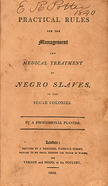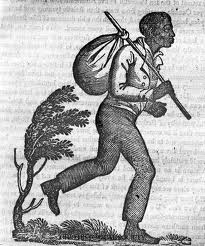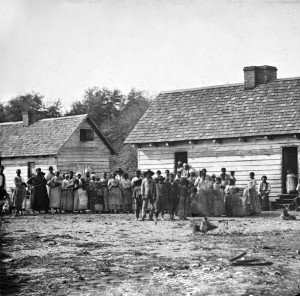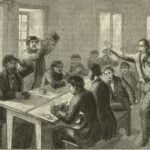Certain types of insanity were found only within the “peculiar institution” of slavery. One was called drapetomania, the disease which caused slaves to run away. The best prevention was kind treatment, but the cure was a good whipping.
Another disease was dyaethesia aethiopica, or rascality. To cure it, victims needed stimulating baths, fresh air and labor, and then wholesome food and rest.
Many doctors and slave owners didn’t necessarily believe in these kinds of unique mental afflictions, but apologists for slavery often pointed out that insanity was rare among slaves. However, that was probably accounted for by the lack of effort to diagnose and treat mental illness in slaves. In reality, problematic behavior in slaves due to mental illness, probably led to their sale rather than treatment.
________________________________________________________









Thanks for your comment–I do sometimes try to point out the irony in the period’s thinking. I agree with the article you pointed out, that psychiatry can often be used as a tool for the people in power against those who are relatively weak. It’s an age-old problem, to be sure.
I’m finding your research quite fascinating and am looking forward to the book.
It does seems a bit problematic to identify “problematic behavior” itself as being caused by mental illness in a situation where human beings are being kept imprisoned against their will as someone’s personal property. I’d assume that the “treatment” outcome which would be considered successful in such an environment would be a happy adaptation to the state of slavery.
This reminds me of an article I read today–not to discount the particular evils of slavery–about another (mis-)application of psychology to the modern workforce:
http://www.huffingtonpost.com/coleen-rowley/omb-orders-government-age_b_806145.html